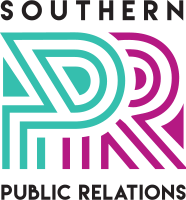Accidents happen. Incidents happen. Sometimes to the biggest and ‘best’ businesses out there.
But it shouldn’t really matter whether you and your business are ‘big’ or ‘small’.
If you’ve spent years of your hard-earned cash and sacrificed so-called work/life balance to build your business. If your personal reputation and brand is on the line if you’re CEO or GM. If something goes wrong, then why wouldn’t you have planned for that gut-wrenching moment when someone dies, someone lies, or someone lays the blame on you?
Sadly, it seems a fair few businesses adopt the head-in-the-sand approach to crisis communications.
WHY?
Being honest enough to admit that you and your business are not perfect (that business really, truly doesn’t exist) and being prepared before the crisis happens is not that hard.
Yes it costs to call on a communication company for training and in the event of a crisis. But what’s at stake here? The most important thing in your business is your reputation; what you’ve built up over the years is something you should be prepared to protect.
SO, HAVE A CRISIS COMMUNICATIONS PLAN.
If you’re in any kind of business you’ll no doubt have operational plans, rules and regulations coming out of your ears. In, for example, aviation, adventure tourism, or events, the levels of compliance are probably driving you nuts, as you’re constantly having to refresh or re-do the mounds of *online* paperwork or show that you meet the latest standards.
But what’s the point in having all that documentation if it can all be unravelled in a matter of two or three days if you don’t respond appropriately to a crisis?
CRISIS COMMUNICATIONS 101
Southern PR’s Director Fiona Woodham shares her ‘Crisis Comms 101’ top tips to help get you started:
- Consider all the scenarios (from death, to injury, to your workplace burning down or a staff member going rogue)
- Think about how, when and why you will communicate clearly and effectively with media, stakeholders, staff and customers
- Think about how you will communicate with all relevant agencies involved in your incident – these might be police, your industry representatives, Victim Support or even the likes of your local RTO or Tourism New Zealand
- Consider what your key messages would be around any of the potential incidents that might afflict your business and how and when you would communicate those to ultimately protect your business and achieve a ‘business as usual’ status
- Review your operational plans in the light of the above scenarios and ask yourself whether you’re comfortable with successfully delivering timely, accurate and targeted crisis communications to all the channels above while you’re in the middle of dealing with the incident itself
- Contact your PR agency so they can review your plans and assess what levels of training might be required BEFORE you need to put them into action
Accidents happen. Incidents happen. They’re going to happen because no matter how well you think you know your business and the people that work in or on it, human nature comes to the fore. People make mistakes. Things go wrong.
“Say sorry,” says Fiona.
“The company is sorry, the staff are devastated, saying sorry isn’t an admission of guilt. It’s all about reputation and trust, not about pulling the wool over anyone’s eyes.”
Businesses that deal with incidents best, big or small, are inevitably the ones that have planned for the unthinkable and are confident that their systems, processes and training are in place.
Hear more from the Southern PR team on what it takes to prepare for a crisis in our upcoming workshop – Southern PR Presents…Crisis Management 101.


